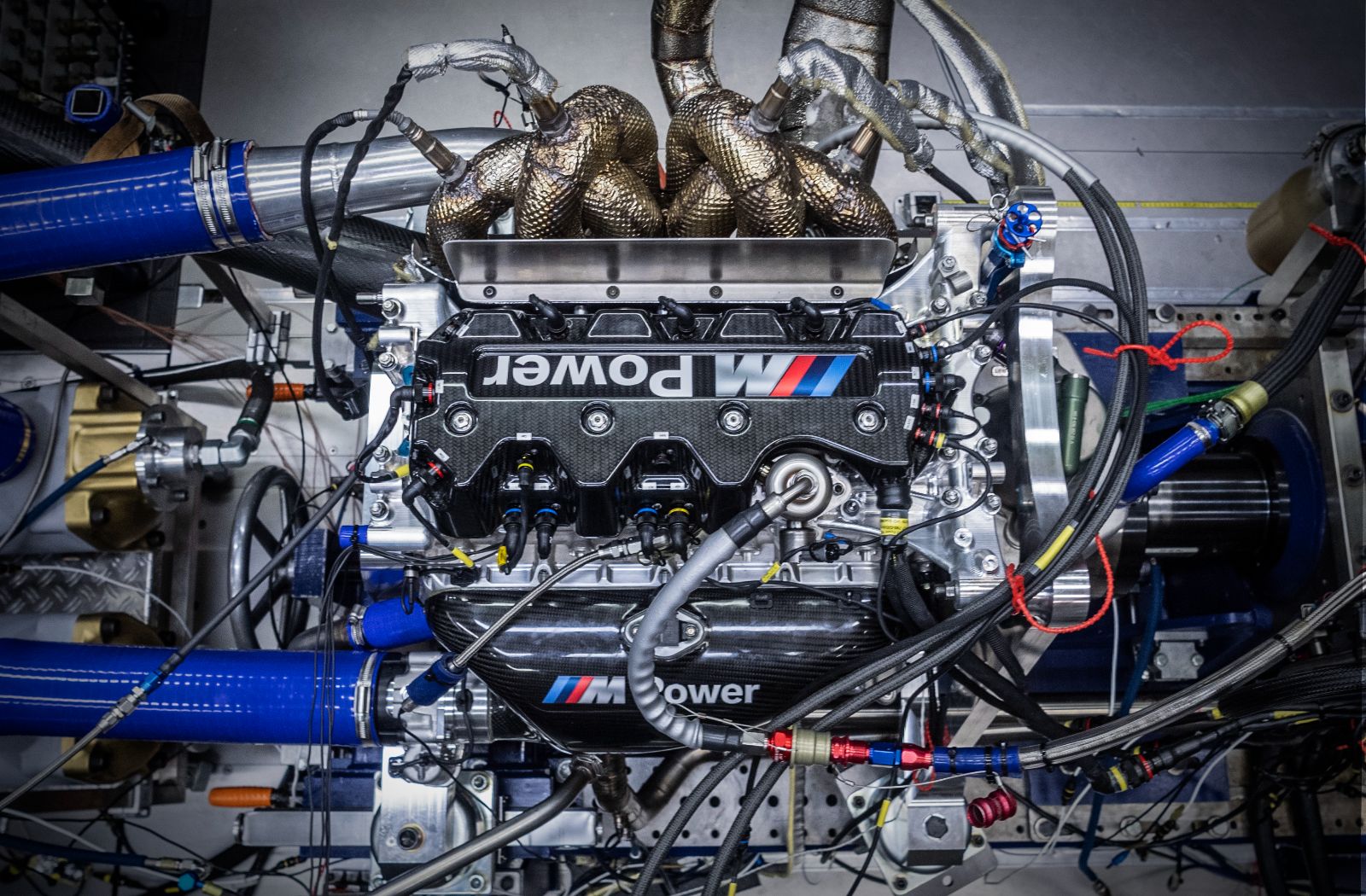Just how to Keep Your BMW Engine for Optimum Efficiency and Longevity
Unveiling the Intricacies of Next-Generation Power Units: a Deep Dive Into Advanced Engine Innovations and layouts
As we stand on the precipice of a new age in transport, the ins and outs of next-generation engine designs bid us to discover the innovative technologies and advancements that promise to redefine the driving experience. Diving deeper right into the worlds of discharge control, smart engine administration systems, and the perspective of power unit development, we discover ourselves on the cusp of a transformation that guarantees to improve the landscape of movement as we recognize it.
Advancement of Engine Materials

The change in the direction of advanced engine materials has likewise made it possible for designers to make engines with higher power outputs while preserving fuel effectiveness criteria. The use of light-weight products lowers the general weight of the engine, leading to enhanced gas economic situation and lower discharges. Furthermore, innovations in materials modern technology have permitted much better thermal management within engines, resulting in raised integrity and long life.
Turbocharging and Supercharging Technologies
Just How do Turbocharging and Supercharging Technologies change engine performance and effectiveness in modern lorries? Turbocharging and turbo charging are technologies that dramatically boost engine performance by increasing the quantity of air intake right into the combustion chamber. Turbocharging accomplishes this by making use of a generator driven by exhaust gases to pressurize the intake air, while turbo charging utilizes a belt- or chain-driven compressor to accomplish the same impact.
These modern technologies allow smaller, extra fuel-efficient engines to create power equivalent to bigger ones, referred to as downsizing. By compeling more air right into the cylinders, turbocharging and turbo charging boost combustion performance, leading to raised horsepower and torque outcome without a substantial increase in engine size. This leads to much better velocity, hauling capability, and total driving performance.
In addition, turbocharging and supercharging contribute to enhanced gas performance by enabling the usage of smaller sized engines that eat less gas under typical driving problems - bmw engine. This mix of improved efficiency and efficiency has made turbocharging and turbo charging integral components of lots of modern-day engine layouts
Discharge Control and Environmental Influence
With increasing worldwide problems pertaining to air quality and environmental sustainability, the implementation of emission control technologies in lorries plays an essential duty in lowering unsafe pollutants released into the atmosphere. Modern vehicles are geared up with sophisticated exhaust control systems that assist reduce the environmental impact of automobile procedures. Catalytic converters, for example, are developed to convert hazardous gases such as carbon monoxide gas, nitrogen oxides, and hydrocarbons into less harmful substances like carbon dioxide and water vapor.
Furthermore, developments in engine innovation, such as the assimilation of exhaust gas recirculation click here now systems and discerning catalytic decrease, have actually significantly added to decreasing emissions. These modern technologies work in tandem to optimize burning performance and decrease the release of unsafe pollutants right into the air. Additionally, the advancement of crossbreed and electric cars represents a crucial step in the direction of minimizing the total environmental footprint of the transportation field.
Intelligent Engine Administration Solution

Furthermore, these systems allow cars to fulfill rigid discharges criteria without jeopardizing efficiency, offering an extra eco friendly driving experience. The combination of expert system and artificial intelligence capacities in engine monitoring systems continues to press the limits of what is possible, bring about additional enhancements in effectiveness, reliability, and total automobile performance. bmw engine. As auto technology advances, smart engine management systems will certainly play a critical function in shaping the future of transport in the direction of a more efficient and sustainable instructions
Future Trends in Power Device Development
As smart engine monitoring systems lead the method for improved control and optimization in modern-day vehicles, future fads in power device growth are positioned to redefine the landscape of automobile propulsion innovations. These alternate power resources provide enhanced efficiency and efficiency while straightening with stringent environmental policies.
Another significant fad is the integration visite site of advanced products and making methods. Lightweight products such as carbon fiber and light weight aluminum are being used to minimize overall vehicle weight, boosting fuel efficiency and efficiency. Additionally, developments in 3D printing and additive production are making it possible for the production of complex engine parts with higher accuracy and toughness.
Moreover, expert system and maker learning are playing an essential function in optimizing power device performance. These modern technologies enable for real-time monitoring and flexible control, bring about extra dependable and effective power distribution. Overall, future trends in power device growth are geared towards sustainability, efficiency, and performance, driving the auto industry towards a brand-new period of propulsion innovations.

Final Thought
In verdict, the developments in engine materials, turbocharging, exhaust control, and intelligent monitoring systems have actually led the way for next-generation power units. The complex layouts and innovations in modern engines showcase the continuous development of automotive technology.
Discovering the modern advancements in engine materials has been pivotal in enhancing the performance and efficiency of modern engines. Over the years, the advancement of engine materials has actually played a vital function in pushing the limits of what engines can achieve.The shift towards advanced engine products has actually additionally made it possible for designers to design engines with greater power outcomes while maintaining gas performance standards.The implementation of intelligent engine monitoring systems in modern-day automobiles has actually transformed the method engines are controlled and optimized for efficiency and performance. By gathering data in real-time and assessing it with innovative algorithms, intelligent engine monitoring systems can adjust to driving designs, ecological aspects, and engine health and wellness to make the most of power output while minimizing gas usage and emissions.